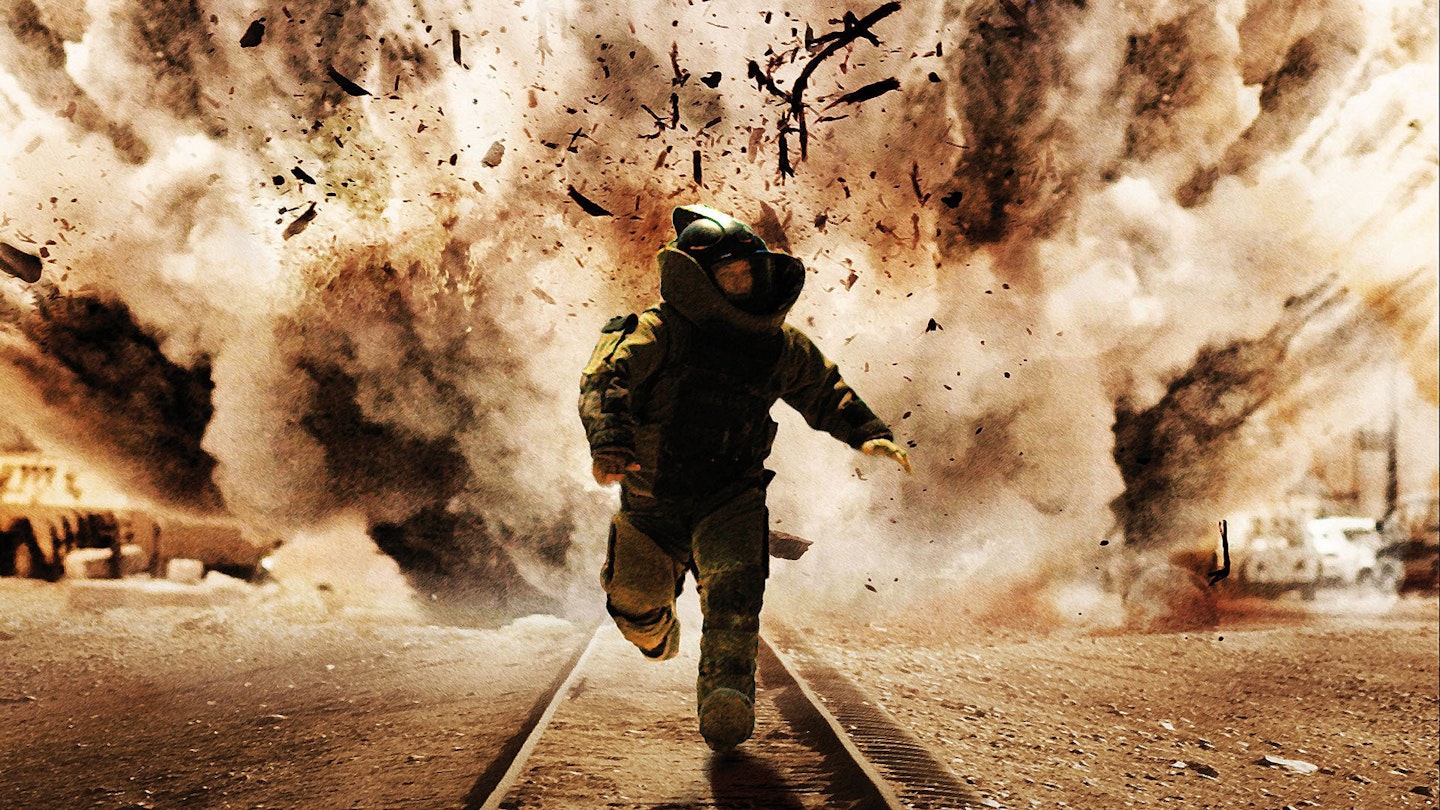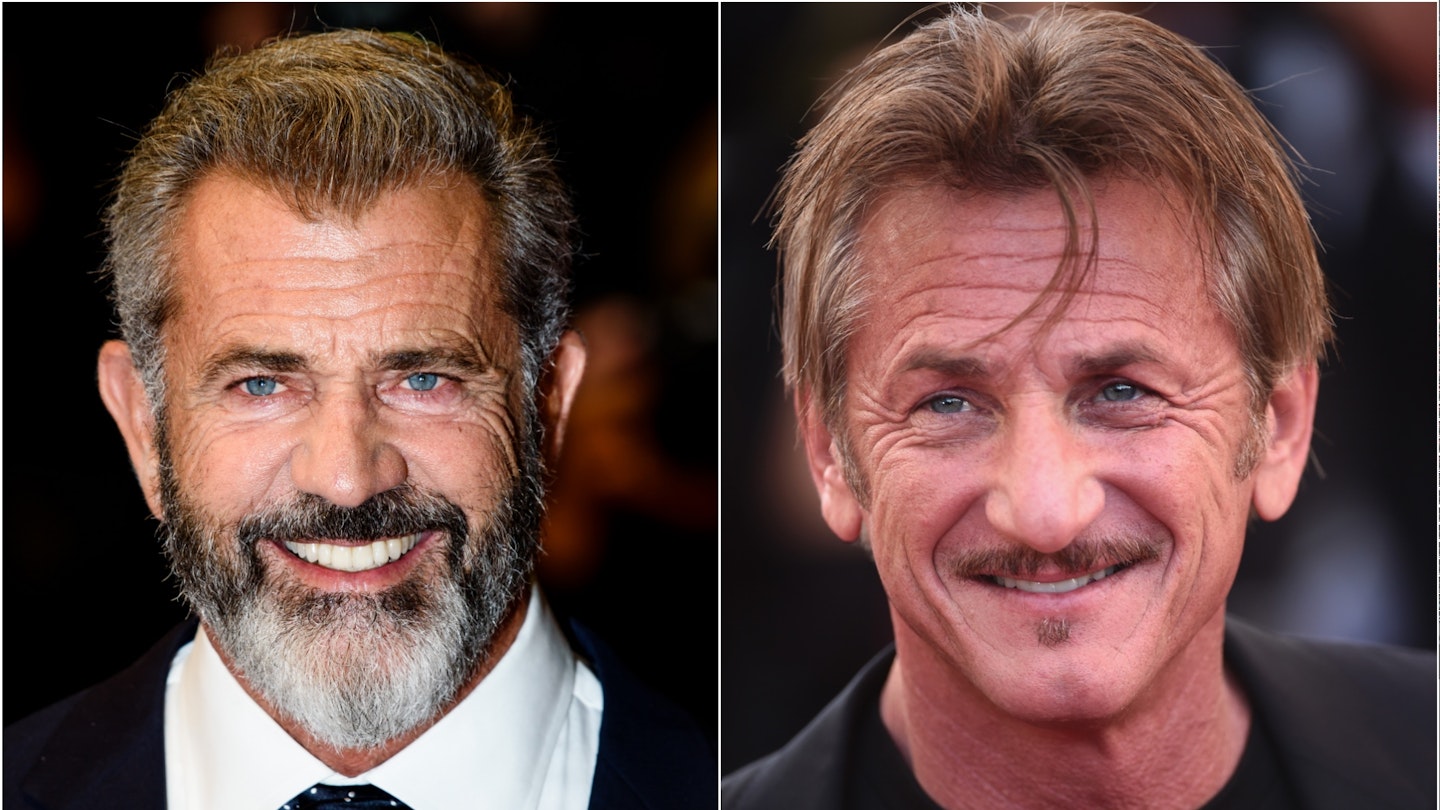Kathryn Bigelow, who has not made enough great movies given the talent she so often flourishes, likes to pitch her films in “heightened emotional states”. These are her own words. Her milieus, however diverse, come super-charged: the roving cowboy vampires of Near Dark, gurgling with blood-lust; the adrenaline junkies of Point Break, funding their surf habits by holding up banks beneath Nixon and Reagan masks; or the techno-junkies dealing in brain clips in the underrated future noir, Strange Days. In K-19, a rickety Russian sub is hit by both radiation leaks and mutiny. Not for the former Mrs. Cameron the tribulations of the average schmo, but beautiful, young men (rarely does she break boundaries of age, sex or general attractiveness) getting high on risk while draped in her trademark high style; a luxuriant if sometimes potty dance of death.
For her latest, and best, adventure in extremis, she couldn’t have found a more heightened state if she went on location to the moon: the very earthbound world of bomb-disposal experts plying their knife-edge trade in the inferno of the Iraq war. It’s required her to strip back her artsy leanings for the stomach-churn of docu-intense vérité. Aside from the odd surreally beautiful, slo-mo dust blizzard care of the various explosive tremors, we are shoved face-first into a grungy hellscape patrolled by pinwheeling handheld cameras, designed precisely to throw you completely off-balance and strip away any cinematic grandeur. Indeed, the film itself does little more than follow the daily shift of confronting suspected IEDs (Improvised Explosive Devices), terrifyingly ramshackle Heath Robinson contraptions built from old shells and hidden elusively amid the wreckage of Baghdad.
Unlike the tirade of recently failed Iraq-themed efforts, the impenetrable geopolitics of the Middle East are not on Bigelow’s mind, nor are the straightforward slings and arrows of the modern combat flick. She’s all about visceral participation. The result is a spare, unyielding masterclass in the racking-up of tension to the point thrill distorts into exquisite agony — not a second relents. If you think the mindless clank of Transformers 2 is a rollercoaster ride, just try riding the steel-wire tension of the opening sequence, where a ‘regular’ mission inexorably slips into horrific mishap at the glimpse of as simple a thing as a mobile phone. While planted in reality, the film shares the oxygen-stifling grip of James Cameron’s Aliens and his finesse with the choreography of action. For every threat, the ground is surveyed, the dynamics assessed, putting you into the epicentre of the crisis. There is also something bizarrely science-fictional in the vision of a soldier, sweltering in the 140-degree heat of a protective spaceman suit, treading softly through the moonscape of empty streets to his dance with death.
Bigelow is especially good on the disorientation and flat-out weirdness of stalking the fragged ruins of Baghdad, where everyone — be they child, adult, old-timer or goat — is a potential trigger. The camera twitches and jerks to the soldiers’ rhythms, glancing toward every flicker of movement, deciphering every friendly advance. Cinematographer Barry Ackroyd (who gave such an unbearable doom-pulse to United 93) had four handheld cameras whirring simultaneously, generating 200 hours of footage, which the editors have pared down into bone-shards of storyline. The drama operates as a set of increasingly unhinged encounters between a team of young EOD (Explosive Ordnance Disposal) ’tecs and their unpredictable quarry — even the plot twitches like it’s been lubricated with Red Bull.
“War is a force that gives us meaning,” trumpets noted war reporter Chris Hedges in the introductory quote used in lieu of opening credits. “War,” he concludes, “is a drug.” And we soon gather that hero/villain/fuck-up hybrid Staff Sergeant William James (Jeremy Renner) is addicted to the head-rush of communing with these piecemeal death-traps. He’s like the brooding son of Colonel Kilgore, minus the cowboy jingoism, and his nerveless gung-ho attitude will stretch relations with his fellow team-members, twitchy greenhorn Eldrige (Brian Geraghty) and gruff, pragmatic Sanborn (Anthony Mackie). A man running this close to death has to be borderline psychopath.
Iraq, it turns out, is merely context. As many of the Oliver Stone school of ’Nam films refused to dally with politics to embody the increasing delirium of experience, it serves as a setting in which to observe how the male psyche endures under impossible pressure. Screenwriter Mark Boal, a magazine journalist who has specialised in the human truths of the Iraqi conflict, writes in strafes of agitation and desperation. The result is a vivid study of existential confrontation as daily routine — how facing your own death becomes the ultimate trip.
James comes across like one of those pumped goons from 300, but with a swell of emotions that hiccup to the surface. He keeps attempting human basics — bonding with a local boy (amusingly flogging pirate DVDs to the soldiers), trying to discover common ground with his team mates, finding something, anything, outside of the vortex of bomb disposal — but he’s too on edge, sucking up adrenaline like a vampire, treating everything, and everybody, as if they are a death-loaded challenge to be overcome.
The effortless (and more than a little Oscar-worthy), not-quite handsome Renner, a relative unknown (note: star names on the cast list can be treacherous red herrings), creates a new form of war-damage. His is a life inverted: listless and out-of-kilter when fumbling with wife and child, almost serene when slowly following the red wires to their slippery conclusions.
The Hurt Locker, such a bruising, brilliant experience, can be viewed as the culmination, to date, of Bigelow’s heightened MO. Amongst her snorting satire of macho posturing that was Point Break crops up a pumped and tattoo-splattered surf-warrior derisively dubbed War Child. Now, heartbreakingly, she has found a true war child, a soul that can only function in country. Without the breast-beating of the Sarandon-Robbins crew, without much Bush-bashing at all, it’s a tragic picture of men defined by conflict.
If it lacks the grand breadth of the great war movies, the mythical elevation of an Apocalypse Now, say, Bigelow has envisioned a stunning microcosm of hell that asks the most nakedly important question of all: will they make it?








